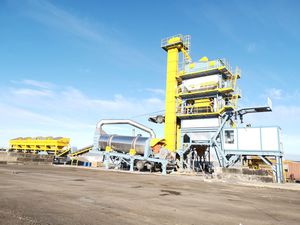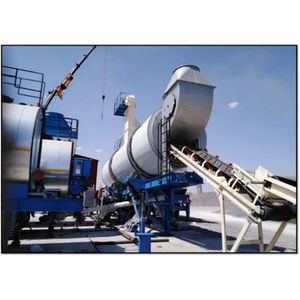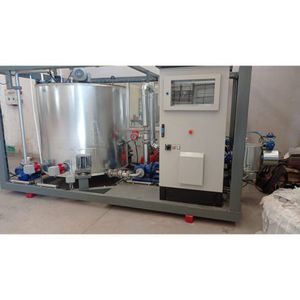

- Company
- Products
- Catalogs
- News & Trends
- Exhibitions
Stationary asphalt plant PBA 40-60

Add to favorites
Compare this product
Characteristics
- Options
- stationary
- Capacity
Min.: 40 t/h
(24 lb/s)Max.: 60 t/h
(37 lb/s)
Description
Welcome to the world of efficient asphalt production with Polygonmach's PBA 40-60 Tph Stationary Asphalt Plant. This state-of-the-art equipment is designed to optimize the asphalt production process for a wide range of construction projects. In this article, we will explore what the PBA 40-60 Tph Stationary Asphalt Plant is, how it works, its components, assembly process, and what sets it apart from other competitors.
What is the PBA 40-60 Tph Stationary Asphalt Plant?
The PBA 40-60 Tph Stationary Asphalt Plant is a high-capacity, stationary asphalt plant designed for the production of high-quality asphalt. Capable of producing 40 to 60 tons per hour, this plant ensures consistent and efficient operation to streamline construction projects.
Functionality and Advantages:
This advanced asphalt plant offers numerous benefits and can be used in a wide variety of construction projects, including roads, highways, and parking lots. Some key advantages of this plant include:
1. High Production Capacity:
Capable of producing 40 to 60 tons per hour, this plant meets the demands of large-scale construction projects.
2. Exceptional Asphalt Quality:
With precise control over the production process, the plant produces high-quality asphalt that meets stringent industry standards.
3. Energy Efficiency:
The plant is designed to minimize energy consumption, making it a more economical and environmentally friendly option.
4. Durable and Reliable:
Built with high-quality materials, the plant is extremely durable and reliable, reducing downtimes and maintenance costs.
Catalogs
No catalogs are available for this product.
See all of Polygonmach‘s catalogsRelated Searches
- Screening unit
- Bulk material screening unit
- Concrete mixing plant
- Vibrating sieving machine
- Silo
- Stationary concrete mixing plant
- Mobile screening unit
- Mobile concrete mixing plant
- Compact concrete mixing plant
- Asphalt plant
- Construction screening unit
- Metal silo
- Process screening machine
- Inclined screening unit
- Automatic concrete mixing plant
- Cone-bottom silo
- Cement silo
- Heavy-duty screening unit
- Discontinuous asphalt plant
- Industrial silo
*Prices are pre-tax. They exclude delivery charges and customs duties and do not include additional charges for installation or activation options. Prices are indicative only and may vary by country, with changes to the cost of raw materials and exchange rates.






























